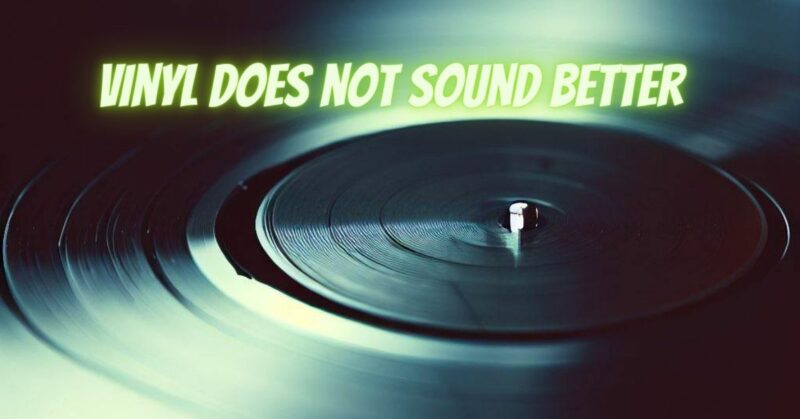Vinyl records have long been associated with a notion of superior sound quality and a warmer, more authentic listening experience. However, the belief that vinyl inherently sounds better than other audio formats is a common misconception. In this article, we will debunk this myth and explore the factors that contribute to the perception of vinyl’s superior sound.
- Sound Quality and Limitations: While vinyl records can offer a unique sound aesthetic, it is essential to recognize that the format itself has inherent limitations. Vinyl records are susceptible to surface noise, pops, clicks, and distortion, which can impact the overall sound quality. These imperfections are a result of the physical nature of the medium and the playback process.
- Mastering and Production Differences: The mastering and production processes for vinyl and digital formats are distinct. Vinyl mastering often involves specific techniques to optimize the sound for the limitations of the medium. On the other hand, digital formats like CDs and high-resolution audio can capture and reproduce a wider dynamic range and frequency response, resulting in a more accurate representation of the original recording.
- Equipment and Setup Considerations: The equipment used to play vinyl records plays a significant role in the perceived sound quality. A well-maintained turntable, a high-quality stylus, and a properly aligned cartridge are crucial for optimal playback. However, achieving and maintaining this level of performance can be challenging and costly. In contrast, digital formats can be played back on various devices with consistent and reliable results.
- Subjectivity and Personal Preference: The perception of sound quality is highly subjective and varies from person to person. Factors such as nostalgia, the tactile experience of handling vinyl, and the overall ritual of playing records can influence one’s perception of sound quality. Personal preference and emotional connections to vinyl records can create a bias towards perceiving them as sounding better, even if the technical measurements do not support this notion.
- Advancements in Digital Technology: Digital audio technology has advanced significantly over the years, allowing for high-resolution audio formats and improved playback equipment. High-quality digital recordings and lossless audio formats like FLAC can provide an accurate and detailed representation of the original recording, rivaling or even surpassing the perceived sound quality of vinyl.
Conclusion:
The belief that vinyl records inherently sound better is a subjective and nostalgic notion that does not hold up to scientific scrutiny. While vinyl offers a unique listening experience and aesthetic appeal, it is important to recognize the limitations and imperfections of the format. Advancements in digital audio technology have made it possible to achieve high-fidelity sound reproduction with digital formats, challenging the notion that vinyl is superior in terms of sound quality. Ultimately, the preference for vinyl or digital formats should be based on personal taste, convenience, and the overall listening experience desired by the individual.


